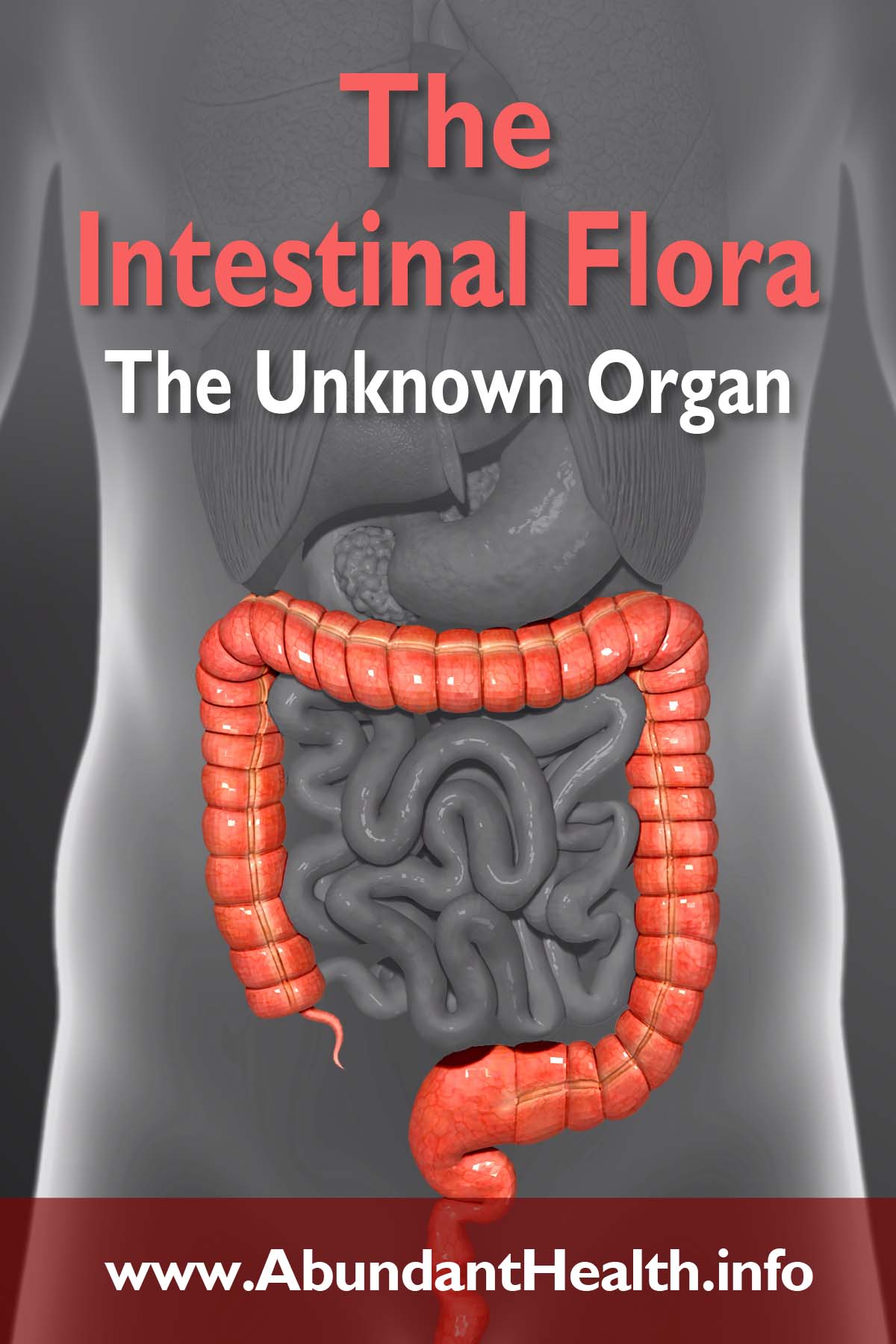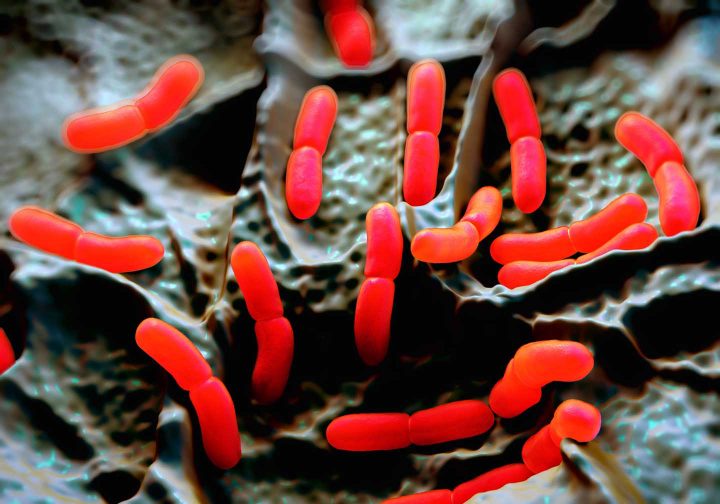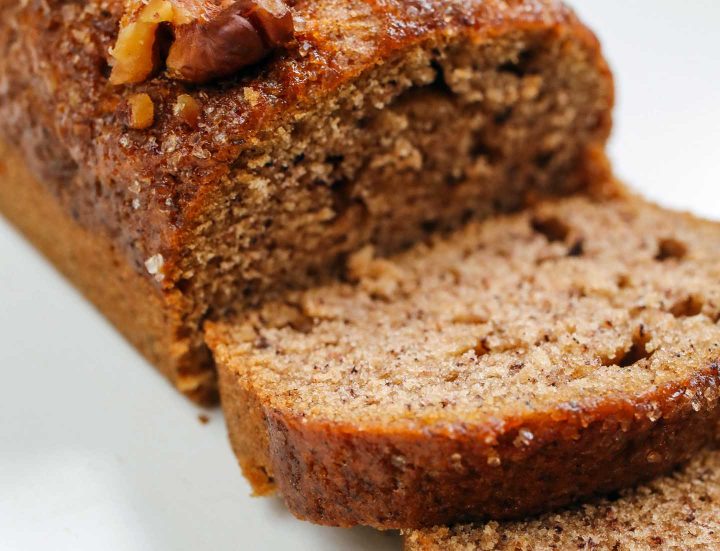Did you know that our body accommodates about 10 times as many bacteria as body cells? A large part is in the colon and forms the intestinal flora, which handles a wide range of tasks for our body. They help with food absorption, strengthen the immune system and promote peristalsis.

Cows and humans have one thing in common: they are home to countless other inhabitants, microorganisms and bacteria. Just the time at which these microorganisms do their work is very different in cows and humans.
In the cow, the breakdown of cellulose and other polysaccharides takes place in the forestomach. Short-chain fatty acids are formed in the process. In humans, the bacteria mainly really work in the colon. Again short-chain fatty acids are formed. The work of these microorganisms is extremely important for the health of cows and humans alike.
The 1013 cells of the human body are opposed to 1014 bacteria in the human ecosystem, that means 10 times more bacteria than body cells. There are far more of them living in the large intestine than in the small intestine. Around 1,000 different species and strains make up the intestinal flora, that can vary greatly from person to person. It is still unknown how, once destroyed briefly by antibiotics or during colonoscopy, they manage to rebuild so quickly into a new colony.
Actually, the term “flora” is not quite correct. Flora means plant kingdom. The phrase was coined in the time when bacteria were still considered plants. Today they are divided into a separate group. The bacteria in the gut are not a lifeless mass. They’re doing metabolism. And this huge number is capable to form substances that have an effect on the entire organism. The performance of the intestinal flora can be compared to that of the liver, which is the most versatile metabolic organ. Intestinal bacteria perform many important tasks on our behalf. Not everything has been explored yet.
Diet and Intestinal Flora
The composition of the intestinal flora changes with the food supply. Deviations in eating habits and dietary changes can affect the balance of the intestinal flora, damage it or conversely promote health. The administration of antibiotics also upsets the balance. If several negative factors are combined, pathogenic microorganisms such as enterococci or clostridia multiply. Health-promoting bacteria such as lactobacilli and bifidobacteria are suppressed. Many diseases are closely related to the intestinal microflora.

Meat eaters have a completely different composition of the intestinal flora than people who only eat plant-based food. A study has shown that the metabolites of the microorganisms found in the stool of meat eaters lead to DNA damage. The result is cancer, especially in the colon. Many substances that are produced during the preparation of meat, especially when grilling over an open fire, also damage the DNA. Damage to the genetic material contributes significantly to the formation of cancer.
Functions of the Intestinal Flora
The intestine, with its huge surface area, represents the largest exchange surface with the environment. Foreign substances, including germs, are constantly passing through. Immune cells are located in the intestinal wall. A significant part of the antibodies is produced by lymphoid tissues in the intestine. They are passed on through the bloodstream and thus reach the mouth, nose and lungs. In this way, other parts of the body are also supplied with protective antibodies.
Healthy intestinal flora plays an important role in the development of the immune system. The harmless germs activate and train the immune cells. The function of the immune system cannot be maintained without a healthy intestinal flora. Of course, our defenses are not infallible and often become weakened, leaving us vulnerable to disease.
The intestinal flora participates in the digestion of dietary fibers. In the past it was believed that these were indigestible because there are no enzymes in the body that can break down fiber. They are therefore passed undigested to the large intestine. But gut bacteria can. They even break down wood. This results in short-chain fatty acids: acetic acid, propionic acid, butyric acid and lactic acid. These degradation products are very rich in energy. They nourish the intestinal mucosa cells and the intestinal flora itself.

It has been found that deficiencies in these fatty acids are common in patients with inflammatory bowel disease. Irritable bowel syndrome, diarrhea or constipation can also be a consequence of disturbances in the intestinal flora. Short-chain fatty acids also stimulate intestinal movements. This promotes the mixing of the chyme for nutrient absorption and further transport.
In addition, the intestinal flora produces substances that the body cannot produce itself. This includes, for example, vitamin K, which is so important for blood clotting. It also produces vitamin B12. Unfortunately, this vitamin is no longer absorbed in the lowest section of the intestine. However, the possibility is being discussed that in the healthy intestines of pure plant eaters such vitamin B12-producing microorganisms continue to rise into the small intestine, where absorption is possible. They can also produce vitamin B1 and B2.
If the barrier function of the intestinal wall is impaired, it becomes permeable. This can lead to inflammatory reactions that can contribute to the development of other diseases. These include inflammatory bowel disease, type 2 diabetes, atherosclerosis, heart failure and certain liver diseases.
In order to improve health and quality of life, it makes sense to pay more attention to the intestinal flora. We can take care of them by eating more fiber. We find them in fruits, vegetables, whole grains, seeds and nuts. If we eat little or – even better – no meat at all, we improve the intestinal flora towards a positive colonization. This makes such a difference in our health.

Stay Always Up to Date
Sign up to our newsletter and stay always informed with news and tips around your health.

Esther Neumann studied Nutrition at the University of Vienna. Since then she served as an author for the health magazine “Leben und Gesundheit” and conducted health lectures in various locations of Austria.
Leave a Reply